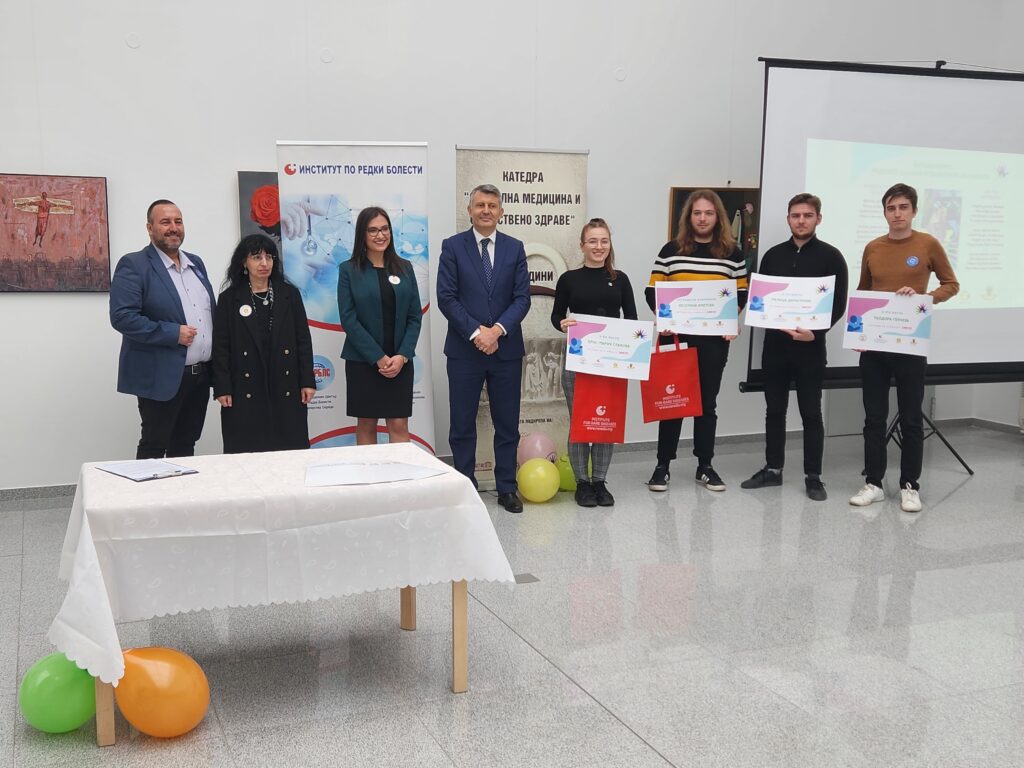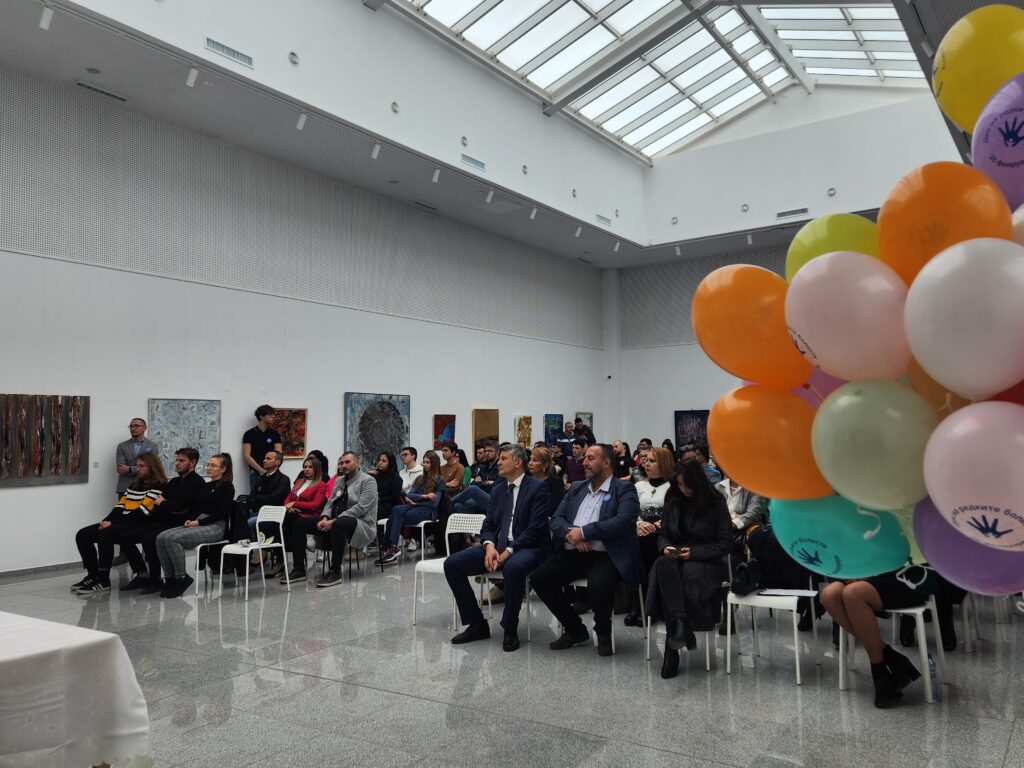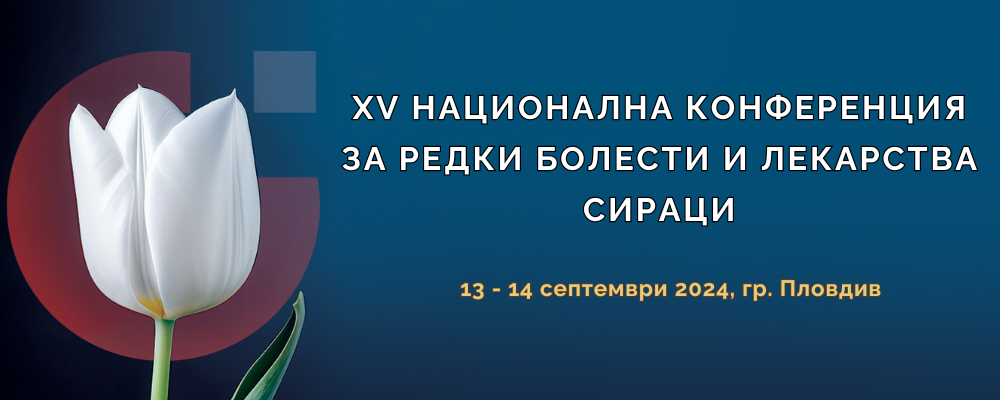 For the 15th consecutive year, the National Conference on Rare Diseases and Orphan Drugs is set to take place, organized by the Institute for Rare Diseases.
For the 15th consecutive year, the National Conference on Rare Diseases and Orphan Drugs is set to take place, organized by the Institute for Rare Diseases.
The conference is the most significant forum in the field of rare diseases in Bulgaria, having been held since 2010. The event traditionally brings together all stakeholders, including medical specialists, patients, medical students, health authorities, and industry representatives, to present and discuss advancements in the diagnosis, treatment, and management of rare diseases, as well as access to innovations.
This year, the event will mark the 20th anniversary of the establishment of the Institute for Rare Diseases. The institute’s team has successfully contributed to the development of the national policy and strategy for rare diseases, providing information and consultations for patients and medical professionals. Additionally, they have successfully implemented various training programs, projects, and seminars.
Location: Hotel Imperial Plovdiv, Plovdiv
Early registration deadline: May 1, 2024
Late registration deadline: September 1, 2024
Abstract submission deadline: August 1, 2024
For contact with the organizing committee: congress@raredis.org
Additional information can be found at the XV National Conference on Rare Diseases and Orphan Drugs – Virtual Congress Center (raredis.org).

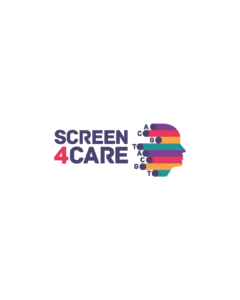 Georgi Iskrov, Ralitsa Raycheva, Kostadin Kostadinov, Georgi Stefanov, Elena Mitova, Rumen Stefanov, and Stefan Stefanov, as part of the Institute for Rare Diseases and the Department of Social Medicine and Public Health at the Medical University – Plovdiv, actively participate in the Screen4Care project, which started in 2021. Screen4Care offers an innovative research approach to accelerate rare disease diagnosis, which is based on two central pillars: genetic newborn screening and digital technologies.
Georgi Iskrov, Ralitsa Raycheva, Kostadin Kostadinov, Georgi Stefanov, Elena Mitova, Rumen Stefanov, and Stefan Stefanov, as part of the Institute for Rare Diseases and the Department of Social Medicine and Public Health at the Medical University – Plovdiv, actively participate in the Screen4Care project, which started in 2021. Screen4Care offers an innovative research approach to accelerate rare disease diagnosis, which is based on two central pillars: genetic newborn screening and digital technologies.
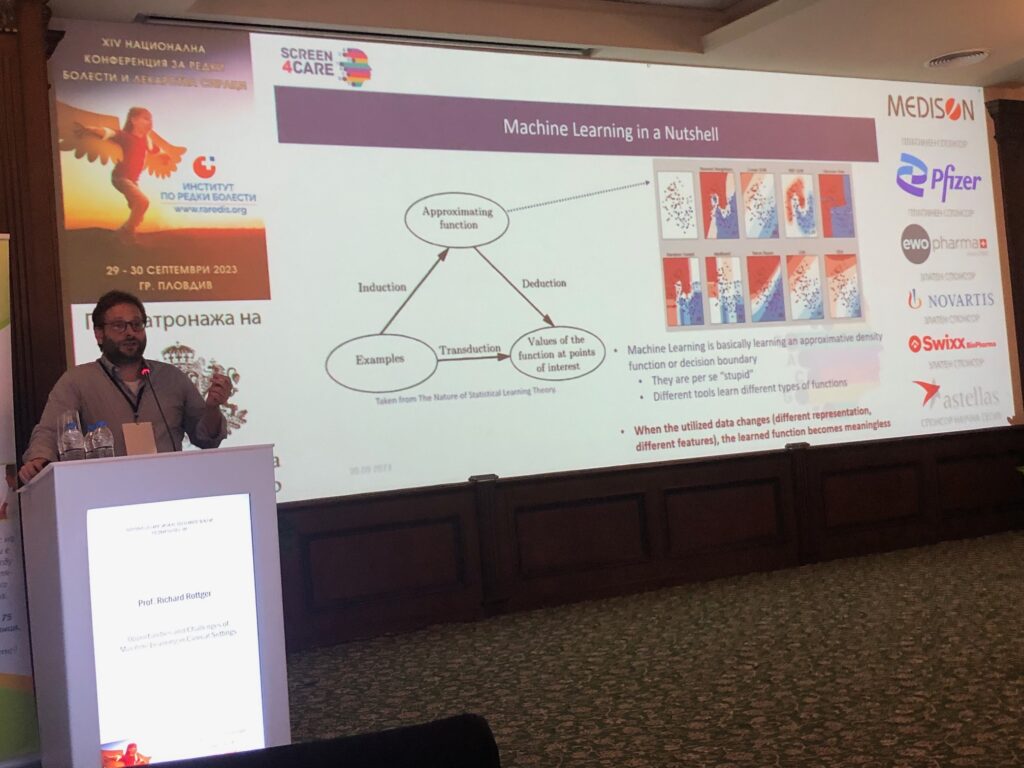
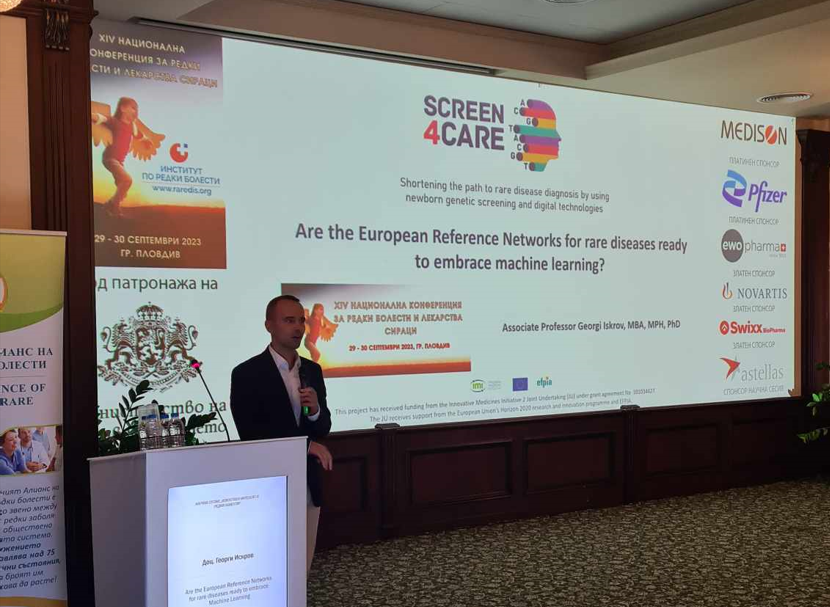
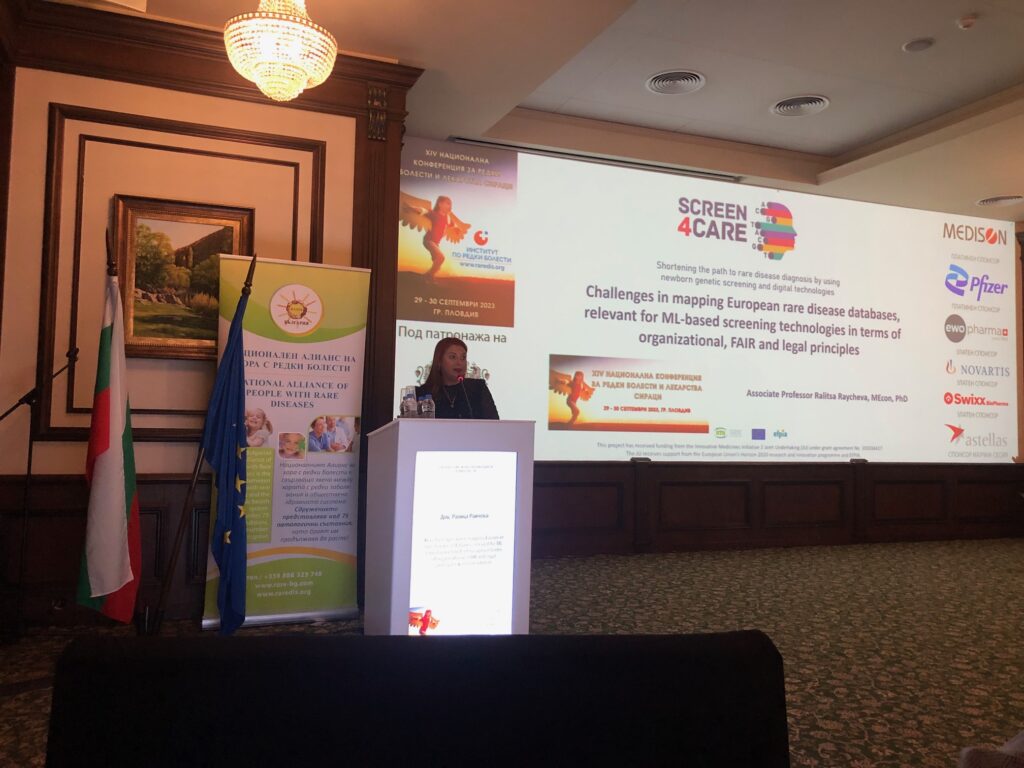
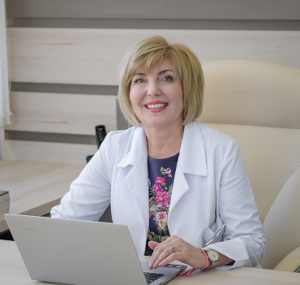
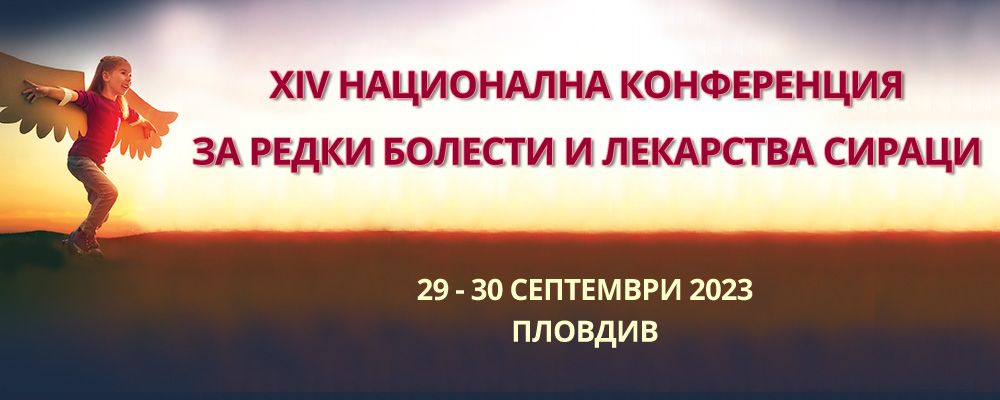 For the 14th year in a row, the National Conference on Rare Diseases and Orphan Drugs, organized by the
For the 14th year in a row, the National Conference on Rare Diseases and Orphan Drugs, organized by the
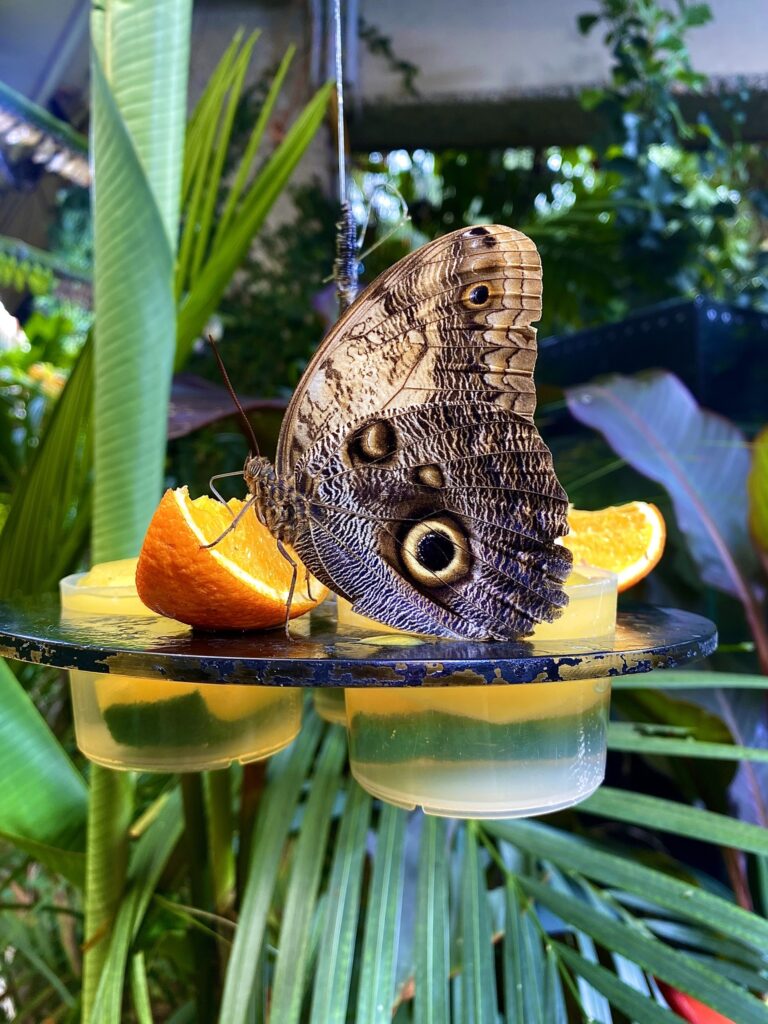


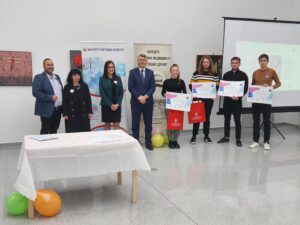 Today we celebrate the International Day of Rare Diseases. On this occasion, the Institute for Rare Diseases and the Association of Medical Students – Plovdiv (ASM- Plovdiv) with the support of the National Alliance of People with Rare Diseases (NAHRB) and the Municipality of Plovdiv are organizing a photo contest for all students from Medical Universities in the country with a passion for photography. Residents of Plovdiv will have the opportunity to visit the photo exhibition in the period from 20.02.2023 to 12.03.2023 at the Roman Stadium square.
Today we celebrate the International Day of Rare Diseases. On this occasion, the Institute for Rare Diseases and the Association of Medical Students – Plovdiv (ASM- Plovdiv) with the support of the National Alliance of People with Rare Diseases (NAHRB) and the Municipality of Plovdiv are organizing a photo contest for all students from Medical Universities in the country with a passion for photography. Residents of Plovdiv will have the opportunity to visit the photo exhibition in the period from 20.02.2023 to 12.03.2023 at the Roman Stadium square.